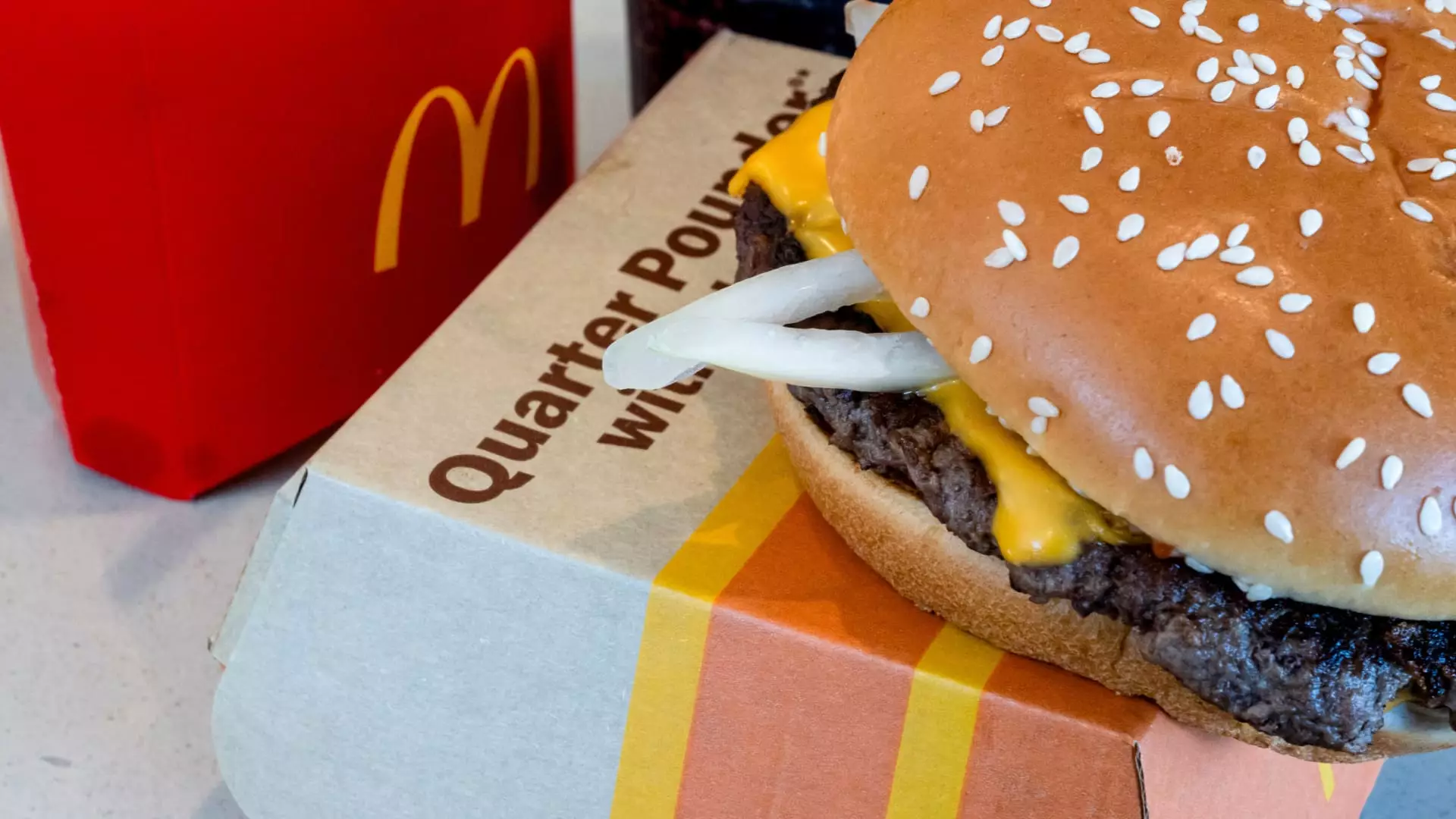The fast-food industry is once again facing a severe health crisis, as a deadly E. coli outbreak has emerged, reportedly connected to McDonald’s signature Quarter Pounder burgers. As of the latest update from the Centers for Disease Control and Prevention (CDC), 75 confirmed cases spanning 13 states have been recorded, with 22 individuals hospitalized and one fatality—a senior citizen from Colorado. This alarming situation not only poses a significant threat to public health but also raises critical questions about food safety standards within the fast-food giant.
Initial reports indicated that 49 cases were linked to the outbreak, but the number has since escalated. The CDC notes that 61 individuals showed symptomatic evidence of infection, with two of those having developed hemolytic uremic syndrome, a severe condition associated with kidney failure. Given that many affected individuals may not undergo testing for E. coli and might recover without medical intervention, the true number of cases could far exceed current estimates. This grim reality illustrates both the limitations of reporting during outbreaks and the potential widespread impact that undiagnosed cases can have on public health data.
The age range of those affected stretches from 13 to 88, indicating that E. coli does not discriminate based on age or demographic factors. All of the surveyed individuals consumed food from McDonald’s, which raises pressing concerns about the restaurant’s food handling practices and supplier safety.
In response to this troubling outbreak, McDonald’s has taken precautionary measures, including a temporary ban on slivered onions, a potential contaminant, from restaurants in the affected states. The company has identified Taylor Farms, a California-based produce supplier, as the source of the onions and announced a recall of four raw onion products due to potential contamination. This incident marks a significant disruption for McDonald’s, as Quarter Pounders represent a vital revenue stream, contributing billions annually to the company’s bottom line.
The impact of this crisis has already been felt on Wall Street, with McDonald’s shares dropping by 6% since the initial announcement. It remains critical for stakeholders and customers alike to assess the long-term implications of such outbreaks on the fast-food chain’s reputation and sales trajectory.
As McDonald’s grapples with the fallout from the outbreak, other fast-food establishments have acted swiftly. Competitors like Burger King and KFC have removed onions from select menu items in reaction to the alarming situation. This collective response emphasizes a shared commitment within the industry to prioritize consumer safety, albeit underscoring a climate of heightened caution in food service.
McDonald’s has also halted the sale of Quarter Pounders in over 20% of its U.S. locations. The company’s public relations strategy focuses on reassuring consumers of the safety of its remaining menu items, underscoring that it is actively addressing the outbreak with utmost seriousness.
The timing of this outbreak is particularly unfortunate for McDonald’s, which was already facing challenges of stagnant growth amid changing consumer preferences. Recent reports indicated that price-constrained customers have been refraining from dining out, prompting the fast-food chain to shift its focus to value meal options. As analysts predict only marginal growth in same-store sales for the third quarter, the E. coli crisis presents additional hurdles.
Despite the immediate financial implications, it is critical to recognize that, barring a widespread escalation of the outbreak, the long-term impacts on the McDonald’s brand are likely to be manageable. Previous outbreaks in the industry, like the one involving Wendy’s two years ago, serve as a poignant reminder that consumer trust can be restored with pro-active crisis management and effective communication.
The unfolding E. coli outbreak linked to McDonald’s serves as a wake-up call for both consumers and the fast-food industry. As investigations continue into the sources of contamination—even beyond the implicated onions—the focus must remain on ensuring stringent food safety practices across the board. For McDonald’s, restoring consumer confidence will depend on transparency in addressing this crisis and a commitment to the highest standards of food safety. The road to recovery may be challenging, but it is also an opportunity for the company to reinforce its dedication to public health and safety in the fast-food landscape.

Leave a Reply